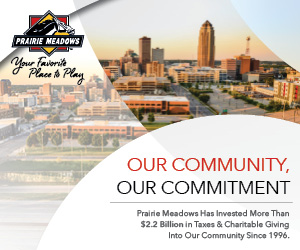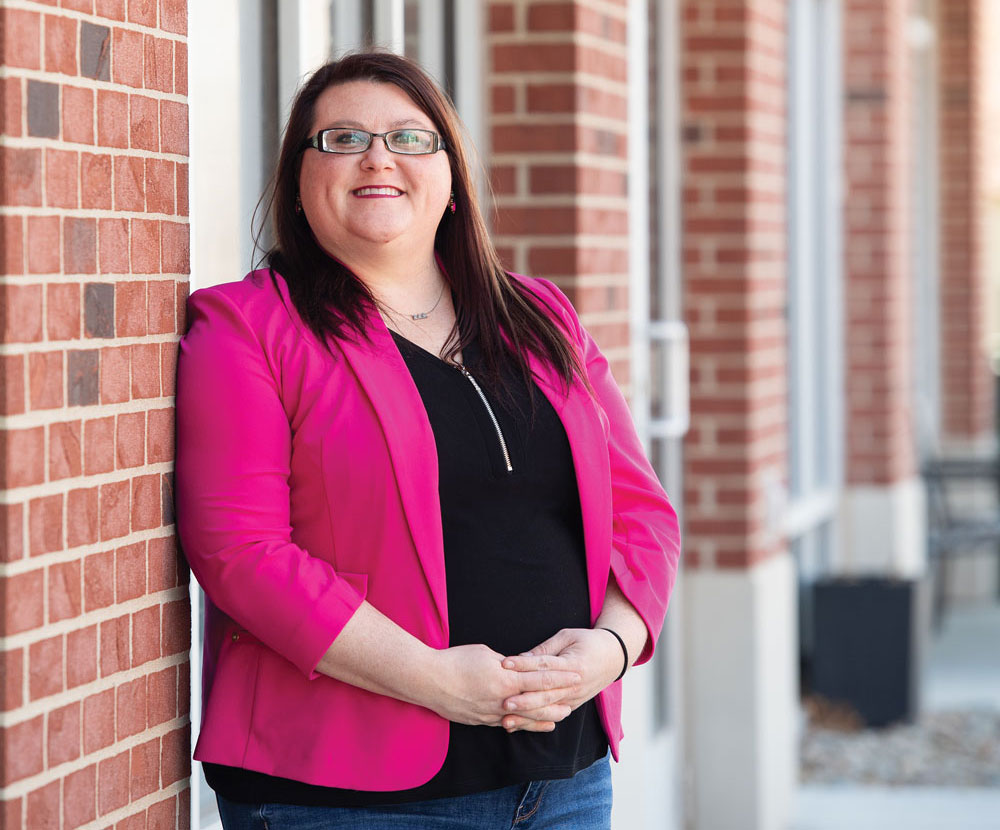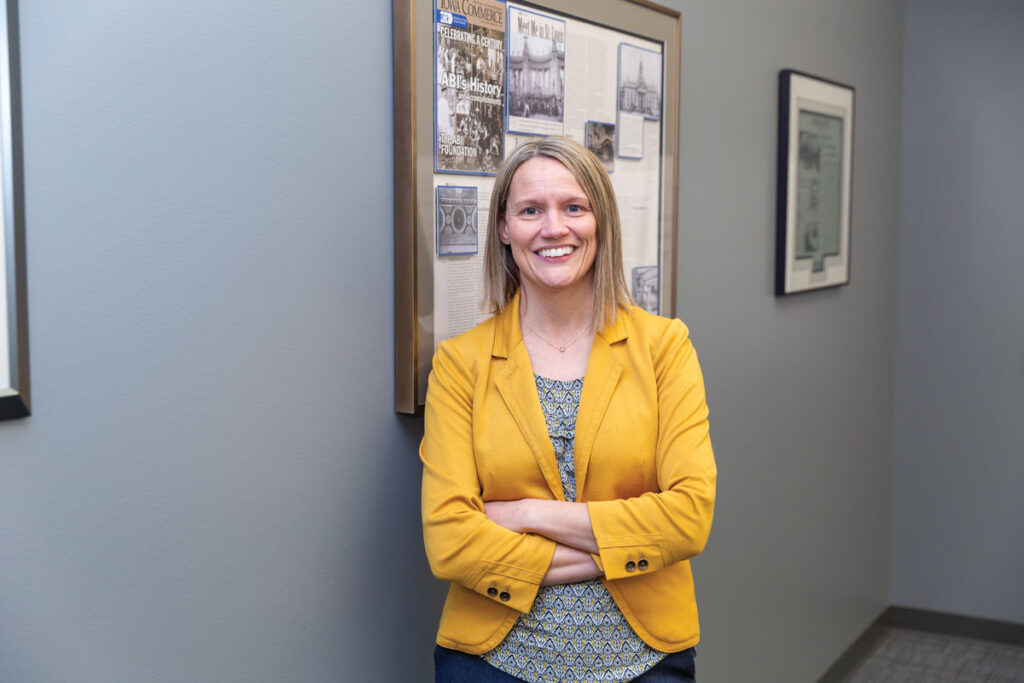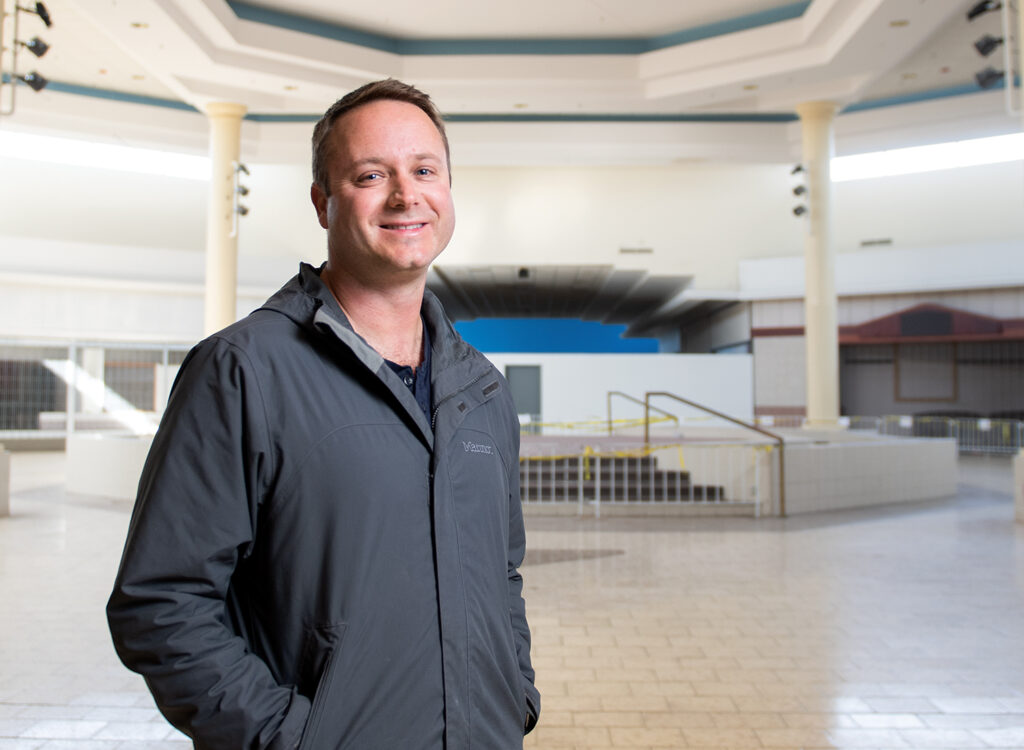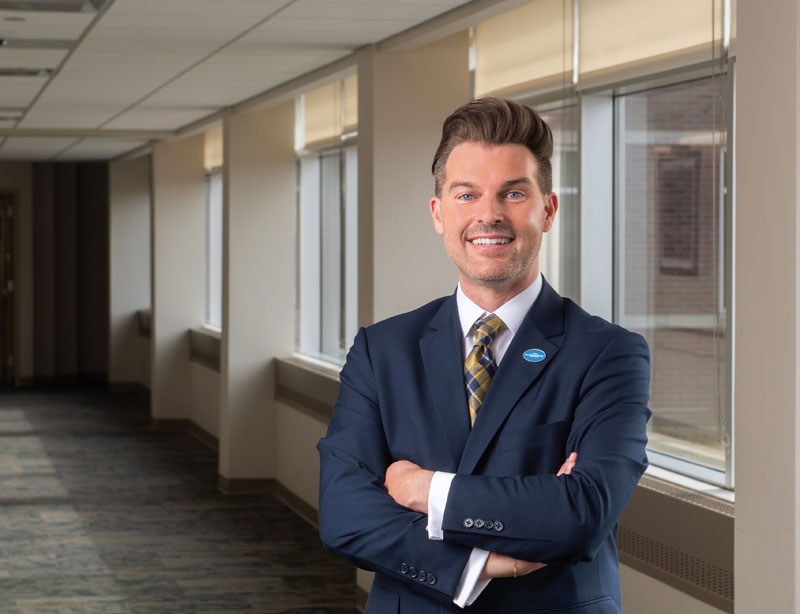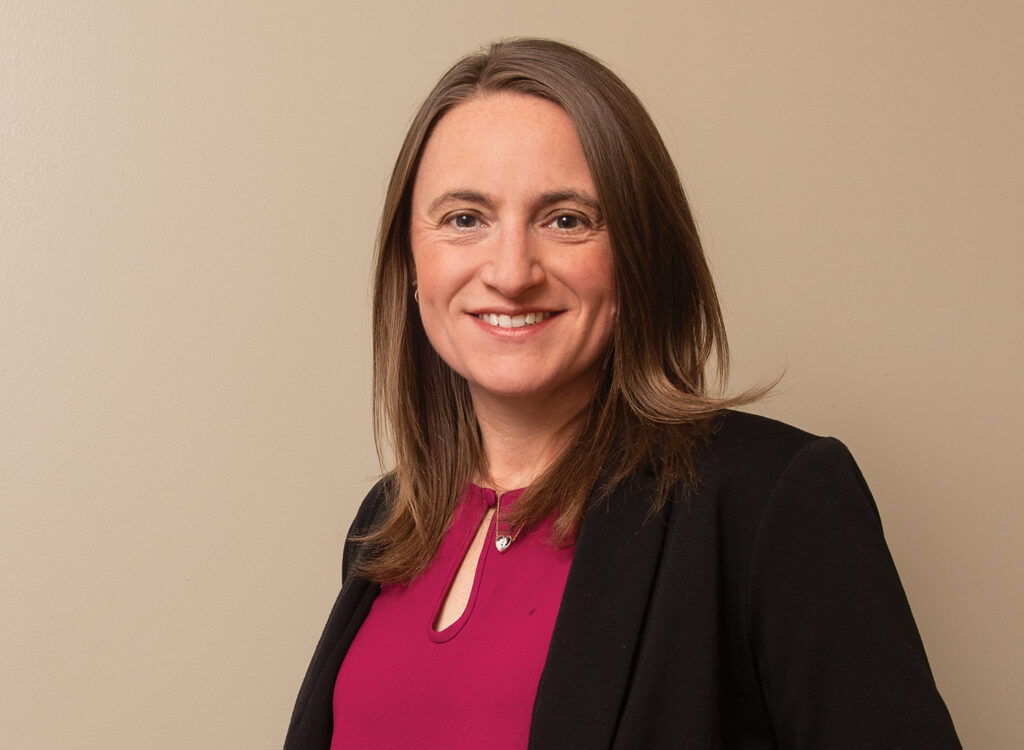A Closer Look: Mary Mendenhall-Core
Director of advancement, Anawim Housing

When Mary Mendenhall-Core first met Anawim Housing founder Sister Stella Neill, the organization’s mission jumped out to Mendenhall-Core for how it tackled affordable housing in an expanding city.
“Through that relationship with her, I got to see firsthand how the organization works directly with the homeless population. Given a safe and stable home, people create happy and healthy lives for themselves,” Mendenhall-Core said.
Anawim Housing uses a housing-first model to provide permanent, supportive housing to Central Iowa residents who have experienced homelessness and live with a mental illness, substance use disorder, physical disability or diagnosis of HIV/AIDS or are fleeing domestic violence.
The model does not require any of Anawim’s clients to complete prerequisite medical treatment, mental health or job training programs before they access stable housing: 96% of individuals who enter into Anawim Housing programs remain housed through Anawim or transition to alternative permanent housing.
“We want to empower the participant to make their own decisions, hoping to provide the opportunity to them so they do reclaim their lives on their own terms,” Mendenhall-Core said.
Mendenhall-Core spent 21 years working at Principal Financial Group before transitioning to the nonprofit sector, including roles at United Way of Central Iowa, Goodwill Industries of Central Iowa and most recently Pinky Swear Foundation, where she was the regional director. She joined Anawim Housing in November 2020 as director of advancement.
“What’s really made a difference in my professional career is the willingness to help others,” she said. “I really like connecting people and making introductions, and hearing later that something beneficial came out of that meeting.”
How do you describe your role as director of advancement at Anawim?
My main role is to connect community members and companies who want to match their charitable interests and passions to the work that we do to end homelessness and provide affordable housing to community members. The more dollars we raise, the more individuals and families we can support to strengthen our community.
Unfortunately with the pandemic, volunteer opportunities have been put on hold. But we’re always looking for collaboration and opportunities to provide furniture and household items to our individuals that are moving from homelessness into homes. Funding is huge because when we say permanent supportive housing, we are providing these apartments for these individuals at no cost to them. It’s really critical to the mission of our organization. We average about 380 individuals that used to be homeless – youth and family – that we provide permanent supportive housing for.
How do you help clients transition to accessible housing?
The concept that we focus on is housing-first. That doesn’t require people experiencing homelesses to address all their problems or to graduate any services before they can access housing. We can support individuals for a year to 10 years, and we work with them through our programming to meet the goals that they set. That can vary from each individual that we support.
Each individual comes to us with different circumstances, so in order to qualify for our program, they have to have experienced homelessness and live with either a mental illness, a substance-use disorder, a physical disability, a diagnosis of HIV/AIDS, or they’re fleeing domestic violence.
How has Anawim addressed some of the challenges the pandemic brought?
We are service-based and we need to be face-to-face with our programs. When the pandemic hit, the challenges were magnified. Those we serve are more vulnerable to illnesses in our community. Our top priority, as well as the safety of our staff, [is] to protect everyone’s health and safety like other organizations. We implemented new procedures right away, and we continue to keep those procedures and evaluate as we go along. We adapted to masking up and supplying masks right away. We have an incredible, dedicated team, and they adjusted well and went above and beyond to meet the needs of those we work with daily.
We’ve been a resource in the community for over 30 years, and the staff and the board work tirelessly to end homelessness, while ensuring that the individuals we serve within the community have a safe place to call home. Anawim is now the largest provider of permanent supportive housing in Iowa – we manage over 450 housing units in Central Iowa. We provide apartments scattered through the city of Des Moines, and this model fosters a sense of home and self-determination. It really helps speed the reintegration of our residents in the community – our goal is for them to become part of the community, and not just live in the community.
What drew you to joining Anawim Housing?
As a Des Moines native, I have many treasured memories of the city’s growth over the years. I’m struck that while the community has made these wonderful advancements in developing our city, we’ve really not kept pace with the development of affordable housing for the most vulnerable citizens who don’t have a home. Almost daily, it’s humbling to hear stories of resilience and hope, which just fuels the passion I have to share how powerful and life-changing the work is. It’s really an honor to be part of Anawim Housing.
What are some of your professional goals for this role at Anawim over the next year?
It’s a fascinating organization and I’m still trying to get up to speed. I’ll continue to work on connecting with our loyal donors and our key stakeholders, which I’ve been learning a lot from them. Besides fundraising, I’m really working with our team to expand our community awareness of the critical work that we do. I love connecting, and I’d be open to discussing potential partnerships or collaboration with community members.
We have a Youth Homeless Opportunity Program, which we refer to as YHOP, and the team is working to dissolve youth homelessness in Polk County. Over the last three years, our executive director, Cynthia Latcham, worked with key stakeholders across Polk County to create a plan for ending youth homelessness. That process was focused on defining the problem, outlining the causes, finding potential solutions. The result was a comprehensive plan aimed at ending youth homelessness. That plan served as the platform for applying for a highly competitive U.S. Department of Housing and Urban Development grant on youth homelessness. These grants infuse financial and technical support into the communities ready to take decisive, specific action and end youth homelessess. We were excited to find out last fall that we would be awarded just over $375,000. That just shows another level of the impact that we’re making on the community. … Just like with adults, there’s so many circumstances that put people in homelessness. I don’t even know if we could guess all the circumstances.
We are currently serving six [ages 18-24] and could house up to 20 with the HUD Youth Homeless Grant.
What’s the best piece of advice or feedback you’ve received over your career?
A few years ago, my position with an organization was eliminated and a good friend, [whom] I would also consider a mentor, shared, “Always be grateful and know that it will all be OK in the end. If it’s not OK, it is not the end.” The advice has helped me get through some other tough times and helps put challenging situations in perspective.
What have you been reading/watching/listening to lately?
The pandemic gave me time to read and listen to podcasts. One of my favorite books that I read was “Dare to Lead” by Brene Brown. It dives into how being vulnerable allows you to let your guard down, and create trust and empathy among peers. That was really beneficial. And since we’re unable to travel, I did read up on some potential travel destinations — we’re always looking for the new adventure.


